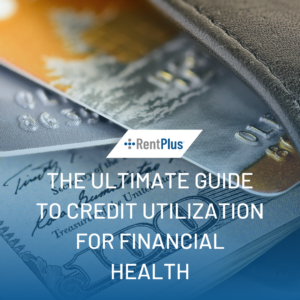Have you ever applied for a credit card or loan? If so, the lender most likely pulled up your credit score to determine which type of loan or credit card you’d qualify for. If you had bad credit or little to no credit at all, your request may have been denied. But, if your credit was above the minimum credit allowed, you were likely approved for a decent loan or credit card.
But, what determines if you have a good credit score or not and how can you improve your credit score? Here is an in-depth look at the five main categories of information in a credit report.
1. Payment History = 35%
This is the highest rated category within your credit score. Your payment history includes payment information gathered from credit cards, retail accounts, installment loans and financial company accounts.
The best thing you can do for your payment history is to always make payments on time. Having a bill sent to a collection agency is one of the fastest ways to decrease your score.
Another way you can drastically improve this section is by recording your consistent payment history of positive, on-time rent payments via RentPlus. This can make a huge impact on your credit score, especially if you don’t have a lot of payment history otherwise.
2. Amount Owed = 30%
This section basically evaluates how much you currently owe on all of your accounts, the number of accounts where you carry a balance, and how much of the total credit line is being used on credit cards.
Maxing out your credit cards will have a drastically negative effect on your credit score. And, if you borrow more than 50% of your credit limit, that will have a negative effect on your credit score as well. According to FICO’s research, people who are using a high percentage of their credit limits are more likely to have a hard time making payments now or in the future, as opposed to people who use a lower level of credit.
However, if you use your credit cards wisely, they can have a positive effect on your credit score. The optimal way of managing your credit and boosting your credit scores is to pay off your credit card each month. If you can’t pay the entire amount, try to double or triple the minimum payment.
3. Length of Credit History = 15%
If you could go back in time and give your 18-year-old self some advice, you’d probably tell him or her to open a credit card and start building credit as soon as possible. A longer credit history can show your consistent on-time payments and low balances, thus improving your credit score.
One of the great things about RentPlus is that we can report your on-time rent payments to the credit bureaus. This can increase your length of credit history and help out your credit score.
4. Types of Credit in Use = 10%
This section looks at how many types of credit you’re currently using, i.e. credit cards, retail accounts, installment loans, financial company accounts, and mortgage loans. It’s best to avoid having more than one or two of any type of loan.
Try to stay away from store change cards, like Kohls or Bed Bath and Beyond, that could drag down your credit score pretty quickly. There are so many of these cards available today that it can be easy to get overwhelmed with too many cards that have high rates and fees.
5. New Credit = 10%
According to FICO, people who open several credit accounts in a short period of time often are a greater risk – especially if they don’t have a long credit history. It can also hurt your credit score if multiple lenders check your score in a short period of time. When shopping around for a loan, make sure you ask the lenders if they’re giving you a hard inquiry or a soft inquiry. A hard inquiry is an actual inquiry into your credit score, but a soft inquiry is just an estimate of your credit score.
RentPlus is an amazing vehicle to build your credit, because it improves your credit score without any negative drawbacks. Your property simply reports to RentPlus that you’re paying your rent and then RentPlus turns around and reports to the credit reporting agencies that your rent was paid on time. It’s a win-win situation!
The best time to start building your credit is now! Create a new RentPlus account and start building your financial future by reporting your rent payments, gaining financial education and tracking your spends through our award winning financial tools.



